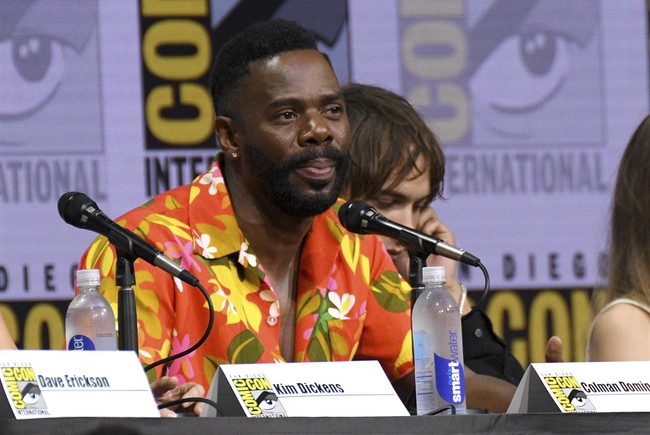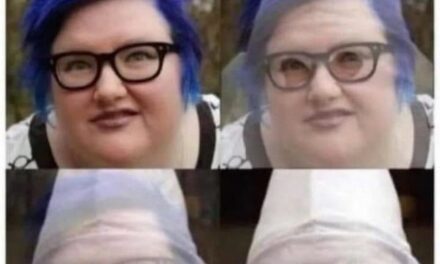We support our Publishers and Content Creators. You can view this story on their website by CLICKING HERE.

Just to set this straight up front, Blaxploitation is a genre of films that arose in the 1970s which were generally low-budget crime thrillers featuring mostly black casts and black directors. The idea of these being exploitation films stemmed from them being a transparent attempt to lure in black audiences, but it doesn’t mean the films themselves were bad or that the people involved had bad motives. In fact, some of these films are pretty entertaining and are well loved by all kinds of people.
Advertisement
Recently I’ve been watching a slew of TV shows featuring mostly black casts. The shows are all action/thrillers so the term blaxploitation seems to fit. But unlike the films of the 70s (Shaft, Coffy, etc.) these shows are not low budget and they seem to be doing big business for the streaming services. The first one I watched was Rebel Ridge.
There’s an obvious BLM sensibility to some of this but it’s more of a gloss in this case. Really this is a pretty direct remake of First Blood only instead of Stallone taking on the corrupt, small town cops led by Brian Dennehy, it’s English actor Aaron Pierre taking on the corrupt, small town cops led by Don Johnson. This may be the one case where race-swapping the protagonist of an old (and very good) movie actually makes sense. Rebel Ridge’s politics are obvious but it mostly sticks to the action, isn’t too preachy and has some fun moments as the cops slowly realize they have messed with the wrong person. Plus the ending doesn’t disappoint in the sense that it fully delivers the massive shootout/car chase that seems promised by the tone of the whole film.
I wasn’t quite as excited about Cross, the new show on Prime based on the Alex Cross novels by James Patterson. I read a bunch of these novels a decade or so ago and they are pretty enjoyable if you’re looking for some light reading. Alex Cross is a black cop in Washington, DC who winds up tracking down an endless array of deranged serial killers. Spoilers ahead so skip this if you’re planning to watch. The villain in this one is a handsome, wealthy white guy played by actor Ryan Eggold. Cross also spends the entire season butting heads with the white woman working as the police commissioner who constantly doubts everything he does.
Advertisement
And of course there has to be a scene where Cross outsmarts and humiliates a racist murderer. This isn’t part of the plot it’s just an introduction to the character.
The show mostly works though the serial killer trope feels a bit 90s and dated at this point. That is, after all, when Morgan Freeman made a few movies playing Alex Cross on the big screen. The acting here is good but the show feels self-conscious about race in a way that’s hard to describe. Were the novels like that? I honestly can’t remember. But I guess there’s no arguing with success and the show appears to be a hit.
Amazon says that “Cross” is Prime Video’s third-biggest series launch and sixth-biggest season launch of all time, accounting for 20 days of viewership for all titles. 55% of its audience comes from outside of the United States, with Germany, the U.K., Brazil, Canada and Spain in particular seeing “outsized performance.”
Finally and most recently, I just finished watching a new Netflix show called The Madness which also features a black cast led by Colman Domingo.
This show is sort of all over the place. It starts out as an everyman story about a guy framed for a murder and gradually transitions into a sort of action story about taking on the system. There’s a lot of snarky political commentary that doesn’t seem connected to the story, including a diss of George Washington at one point. But the show also tries to balance the frequent left-wing commentary by including a small mob of militant Antifa members in the plot. They are gun rights enthusiasts and run an illegal shooting range and they are depicted as ready to kill anyone they don’t like, not so different from the neo-Nazi group that is also part of the plot.
Advertisement
Even more so than Cross, The Madness seems excessively focused on the concept of authentic blackness. [Spoilers ahead.] The whole character arc here is that the main character quits his job at CNN, where he is a well-payed progressive commentator, because that’s part of “the circus.” His entire family decides he’s okay again when he eventually quits that gig to teach black history to public school kids.
The villain in this one is once again a rich white guy, a billionaire who has a deranged white hit-woman and a racist white billionaire working for him. There’s a lot of talk about misinformation in this show but it never really goes anywhere. It’s like the writers put together a jumble of left-wing talking points and some guy vaguely like Mark Zuckerberg or Elon Musk and called it done. Here’s how Forbes described it.
The politics of this series are all over the place and ultimately amount to nothing. We have neo-Nazis and “Antifa” anarchists and corrupt businessmen and a murderous tech mogul killing people to “save the planet.” After all of this, Muncie expertly concludes that the bad guys are anyone who is “f***ing with people’s lives.” For a show meant to be about political and cultural influence, this has nothing to say of any value. Rich people bad. Nazis bad. Antifa bad. Tech industry bad.
By the end it just seemed pretty ridiculous as the entire media is part of a plot to…something. I’m still not sure what the point was. But the first couple episodes before it became a giant conspiracy theory were pretty good.
Advertisement
There’s an article in the NY Times Magazine today suggesting that maybe the “diversity era” of films is coming to an end.
Looking back, you can see a period when identitarian politics were in cultural ascendancy; you can spot the moments when our media overlords — on their back feet over rage at the crimes of Harvey Weinstein, the paucity of nonwhite nominees at the Oscars, the aftermath of George Floyd’s death — vowed to change their ways and atone for their past. But what was particular to the Hollywood of the 2010s was the way these politics fused with the industry’s insatiable demand for sequels, spinoffs and reboots, giving us a curious and mercenary new invention: the inclusive multimillion-dollar blockbuster. (The BIPOCbuster, if you will.) It’s the same old thing, but with a bold and visionary new twist: fewer white guys…
Hollywood is no less dependent than before on its original lore, its Aliens and Star Wars and Missions Impossible, recycled over and over to keep us entertained. The industry tried to update these formulas with new faces, but many of its efforts felt dutiful, insincere, too earnest and self-satisfied. Say what you want about the flaws of Schwarzenegger’s or Sergio Leone’s oeuvres, but they have survived the changing times because they are fun, something the P.C. blockbuster rarely had going for it.
We might be moving past the “diversity era” of films but the tropes of 2020 seem to be just getting started on streaming services. Some of those films might still be fun but the ones that aren’t are going to be tedious.
Advertisement

 Conservative
Conservative  Search
Search Trending
Trending Current News
Current News 







